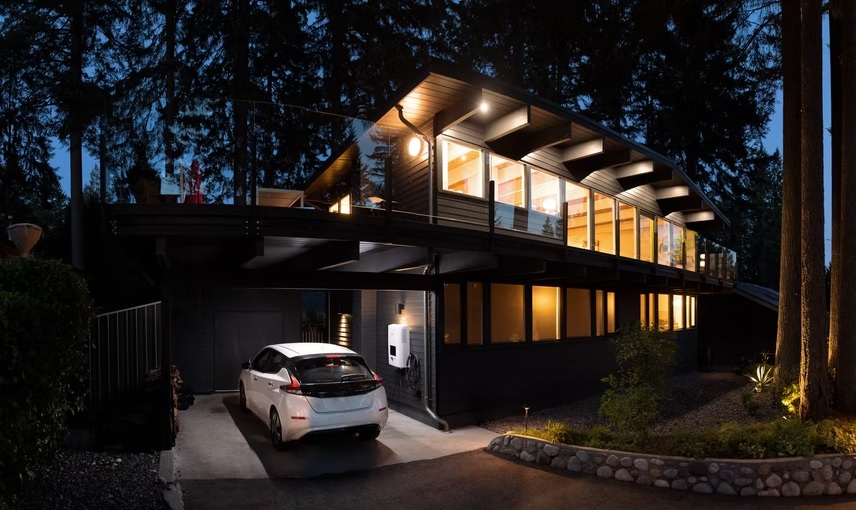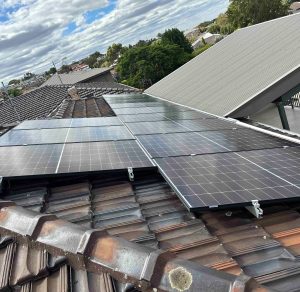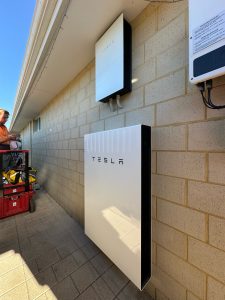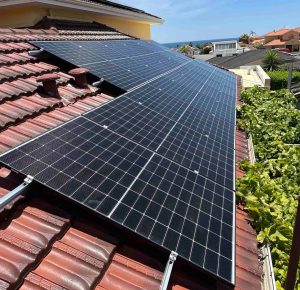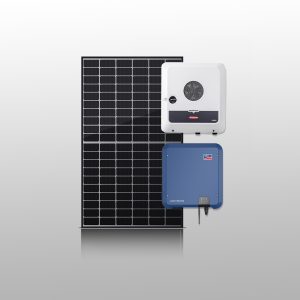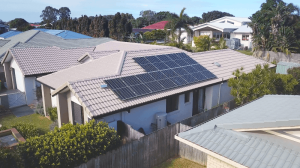Solar EV Charging provides more value to your home solar system. As per the Electric Vehicle Council of Australia, EV sales are increasing in Australia since 2022. Rooftop Solar and EV Charging would be the perfect combination. By choosing solar plus EV, you are stepping into a mission of sustainable living.
A small step to live sustainably is a great effort in the modern world where global warming is identified as one of the challenges. Switching over to solar will help to reduce the consumption of fossil fuels; thus, helps to tackle the global warming issue. You will save a good amount of money by choosing rooftop solar and EV. Solar-powered EVs offer driving comfort because it generally operates without noise and vibration. In addition to that, choosing these vehicles means you are offering a hand to preserve natural resources.
EVs can reduce carbon emissions considerably. These electric vehicles have electric motors, they burn no fuel and produce no emissions. Moreover, solar electricity has become cheaper than any other fossil fuel.
Residential Rooftop solar + EV Charging
The introduction of electric vehicles and the expansion of rooftop PV power generation are both progressing at a fast pace to decarbonize the transport and the energy sector.
Rooftop solar and electric vehicles are a perfect combination. A residential rooftop solar system can be used to charge up an EV, but it’s very unlikely that you will be able to be 100% self-sufficient if you need to charge your car up in full every day.
You can plug your EV during the day when the sun is shining. Only if the amount of surplus solar electricity being generated is equal to or greater than the amount charging the car, only solar power will be used. However, if the amount of solar power is less then at least some grid power will be used.
The average Australian passenger car is driven around 1400 kilometers a year, which comes to an average of about 38 kilometers a day. So if you get 5 kilometers of range for every kilowatt-hour of charge you attempt to stuff into your car, you will use almost 8 kilowatt-hours a day. However, the specific number of panels to charge your EV depends on the size of your electric car’s battery.
A standard solar panel system to cover that usage is 5kW (16 panels) and generates an average of 20 kWh of electricity daily. If you want to use some of that electricity at night you can get a battery ranging from 5kWh to 15 kWh to store 25% to 75% of that electricity, respectively. An article titled Using rooftop photovoltaic generation to cover individual electric vehicle demand—A detailed case study conducted by Martin et.al finds that when charging uncontrolled (the strategy used during the study), BEV owners can only cover 15 % of their BEV demand using PV generated from the roofs of their own houses.
A simple controlled charging approach greatly increases the average coverage to 56 % and up to 90 % or 99 % when using an optimized charging strategy without or with home battery storage. All charging strategies ensure that the individual mobility behavior of the BEV owners is not affected.
What is the maximum capacity of the residential solar system in Western Australia (WA)
In Western Australia, the maximum capacity of the solar system that you can install for single-phase connectivity is 5kW. It is confined to 15kW for three-phase connectivity which means 5kW per phase.
Best Home EV Chargers and their price in Australia
Various types of EV chargers are available in the market. A Plug-in socket charger is one of them. It can be used with any common 10A wall socket. These small, portable chargers generally require 24 to 36 hours to fully recharge an average EV, depending on the battery size and initial state of charge. Most 10A chargers can charge at a maximum rate of 2.2kW but typically draw from 1.7kW to 2.0kW which adds around 10km to 14km of range per hour, depending on the vehicle. Its price comes in the range of $400 to $700. Single box wall box EV chargers can be mounted on a wall or a post.
Most are rated at 32 Amp which is the equivalent of 7.4kW of power and can provide a vehicle with a range of 40 to 50km per hour at the full charge rate. Its price comes in the range of $700 to $2500.
Three-phase wall box EV chargers have three supply phases. At the maximum charge rate, this can provide a vehicle with a range of 120 to 150km per hour. Its price comes in the range of $800 to $2800.
The recent technology has produced a combined solar inverter and EV charger. Solar Edge is the first solar inverter manufacturer to produce a combined solar inverter and EV charger that can either charge from solar only or from solar and the grid simultaneously at a rate up to 7.4kW. Its price comes in the range of $2500 to $3500
Bidirectional chargers, V2G, V2H, V2L
Unlike an ordinary charger, a bidirectional charger allows to flow to and from your EV. Bidirectional chargers can draw power from your vehicle, if required, to power your home. Different types of bidirectional chargers are available now. A vehicle–to–Grid or V2G charger enables energy to be pushed back to the power grid from the battery of an electric car. Vehicle-to-home or V2H charger allows to power a home and enables the EV to function much like a large household storage battery. Vehicle-to-load or V2L technology does not require a bidirectional charger to operate. It allows to plug-in directly into the standard AC outlet and be used as a backup power supply in the event of a blackout or an emergency.
Need for Solar + EV in public places and workplaces
The use of electric vehicles is growing fast as a dependable alternative to traditional fuel-powered vehicles. These vehicles require their batteries to be “fueled up” for continuous operation. However, most people are concerned about EVs’ inconvenience or the inability to charge their cars when away from home. Solar EV public charging stations are a good solution to this problem. The frequent availability of solar charging stations in public spaces and workplaces will definitely attract vehicle owners to switch over to solar-powered electric vehicles.
Best Home Electric Vehicle Chargers and their price in Australia
Nowadays, electric vehicles are emerging as an ideal solution to reduce the use of fossil fuels. Electric Vehicle chargers are becoming more sophisticated and cost-effective. A list of Electric Vehicle chargers is given below. Table 3 Price of Electric Vehicle charger available in Australia
| Model | Power (kW) | Smart Features | CT Meter | Warranty | Price Range AU$ |
| Smappee EV Wall | 7.4kW 22kW (3P) | Solar-only charging, Load-balancing, Smart scheduling (AI), RFID, Built-in home energy management | Included | 2 years | $1900 to $2400 |
| Myenergi Zappi V2 | 7.0kW 22kW (3P) | Solar-only charging, Load-balancing, Boost mode (fast), scheduling | Optional extra (Harvi) | 3 years | $1200 to $1500 |
| Anderson A2 | 7.0kW 22kW (3P) | Solar-only charging, Load-balancing, Smart scheduling | Optional extra | 3 years | $2200 to $2600 (UK) |
| EO Mini PRO-2 | 7.2kW | Solar-only charging, Load-balancing, Scheduling | Optional extra | 3 years | $1200 to $1850 |
| Fimer Flexa AC wallbox | 7.4kW 22kW(3P) | Load-balancing, Smart scheduling, AC relay output, Digital I/O | Included | up to 10 years | $2400 to $2900 |
| Wallbox Pulsar Plus | 7.4kW 22kW(3P) | Load-balancing, Smart scheduling | Optional extra (EMS) | 3 years | $1350 to $1600 |
| Enel-x JuiceBox 40 | 9.6kW | Scheduled charging, Load-balancing, Voice control | N/A | 3 years | $600 to $750 (US$) |
| Tesla Wall Connector | 7.4kW 16kW (3P) | Smart scheduling, *Solar-only TBA* | Optional extra | 4 years | $600 to $800 |

